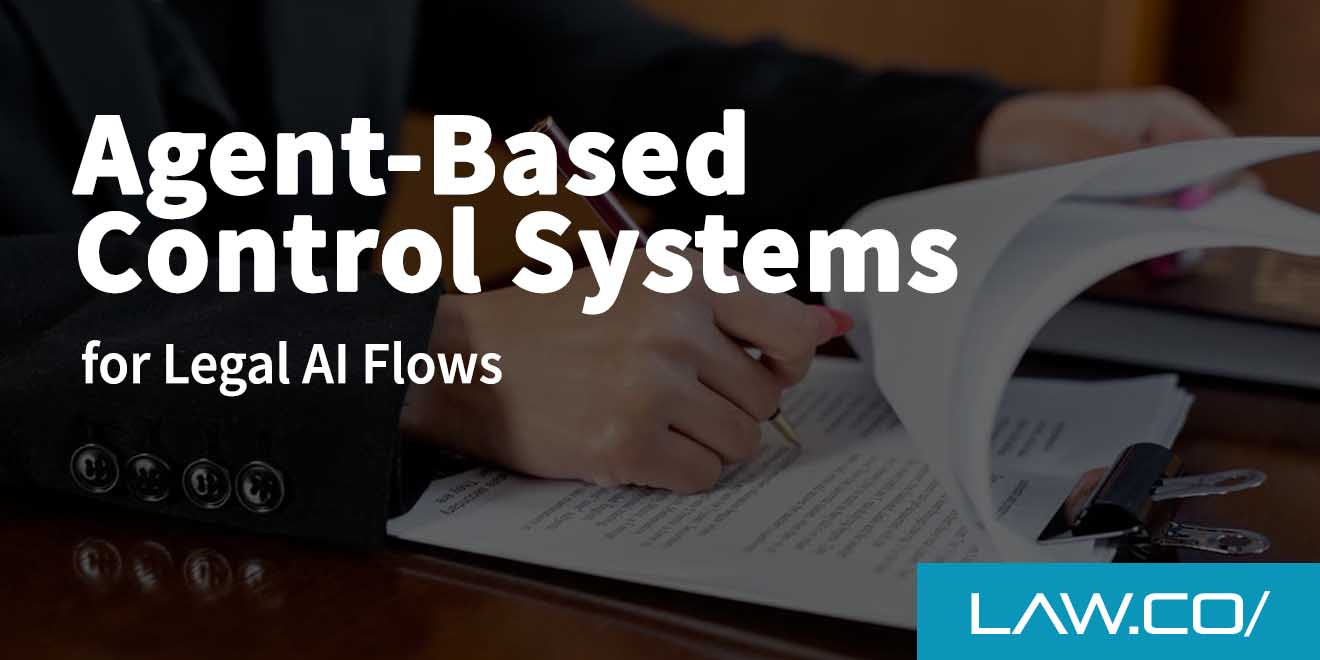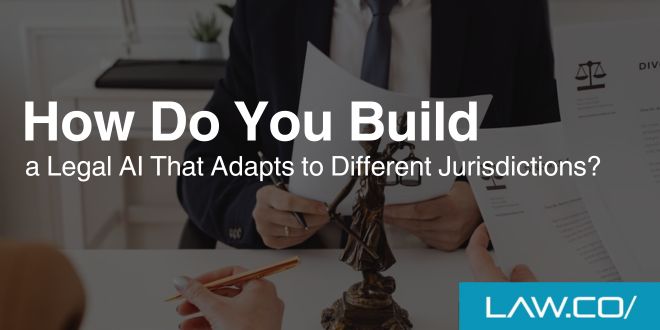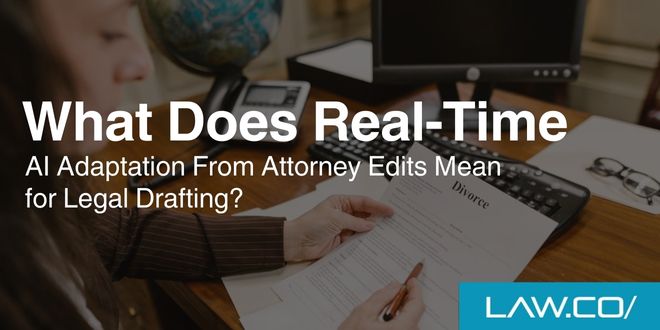

Should I Use Legal AI in My Law Firm?
Artificial intelligence (AI) is taking over the world, transforming businesses and equipping individuals with sophisticated technological tools that we wouldn't have thought possible even a decade ago.
However, as with most novel technologies, generative AI isn't perfect, and it isn't something that's a perfect fit for every business.
In the legal industry, law firms and lawyers are debating whether to integrate legal AI into their business practices. There are certainly some good arguments supporting integration, but should you really use legal AI in your law firm? And how should you make this determination?
The Basics of Artificial Intelligence (AI)
By now, you've probably started using at least a handful of artificial intelligence (AI) tools in your business, or even in your personal life. The term has evolved to apply quite broadly to arrange of advanced technologies that use pattern recognition, advanced processing, and other mechanisms to produce impressive, fast results.
Depending on the application, AI is usually superior to human beings. It can simplify, automate, summarize, and execute almost any repetitive task. However, the exact nature and capabilities of an AI tool depend on how it was designed and what it was designed for.
What Is Legal AI for Law Firms?
What is legal AI designed for law firms?
There are actually many different AI tools that law firms can use to enhance their practice. Legal AI, specifically, attempts to help lawyers with some of their most tedious and repetitive tasks, including:
· Legal research. Legal research is a pain, requiring you to sort through hundreds, or even thousands of different cases – and try to make heads or tails of occasionally opaque judicial opinions. Legal AI makes this process much simpler, allowing you to generate more relevant results more quickly and summarize those results in record time.
· Document review. Legal AI also allows you to practice document review much more quickly. Instead of manually reading and reviewing every piece of information, you can allow AI to do it for you and save yourself some time.
· Document drafting. Similarly, legal AI can be used for document drafting. If you have all the information in place, it can whip up a contract, a memo, a motion, or almost any other type of legal document you imagine. The finished product may not be perfect, and you may have to apply some final tweaks, but it's still going to save you a lot of time.
· Proofreading and recommendations. The legal profession is one of meticulous detail. You need to make sure that all your legal work is thoroughly reviewed before being submitted or formalized. Legal AI can proofread your materials as an extra set of eyes, and even provide recommendations for how to correct or improve things.
Additionally, other generative AI tools can help your law firm with things like:
· Customer service. Many law firms have adopted legal AI for customer service, answering common questions from new prospects and clients and providing instantaneous chat options with the help of chatbots. If you have a sufficient knowledge base and chatbot training, this can be a highly effective way to communicate with your legal services to your customers.
· Marketing. Generative AI is also powerful in the context of marketing. It can help you simplify, automatic, and scale up all your marketing and advertising efforts.
· Workflow automation. Some law firms also incorporate generative AI for the sake of workflow automation. With the right tools, you can create automatic processes and steps that save you time and streamline communication within your team.
The Benefits of Using Generative AI in Your Law Firm
These are just some of the benefits of using AI in your law firm:

· Time savings. One of the most obvious benefits of using AI is time savings. Instead of spending hours sorting through complex cases, you can spend minutes browsing through summaries. Instead of spending an hour or two writing a first draft of a legal document, you can churn one out in 15 minutes and spend the rest of the time polishing it. When properly integrated, AI can save you hours of time every week, at minimum.
· Cost savings. By extension, AI can save you a lot of money. In some law firms, legal AI can take the place of more than one paralegal, ultimately saving you significant labor costs. Your most talented associates, with extra time, can tackle tougher problems and generate more revenue for your business. Ultimately, AI is a relatively small investment that can make your law firm much more profitable.
· Broader access. In some cases, legal AI can give you access to broader results and more total information. The best legal AI tools on the market can look up cases, laws, and other legally relevant information from a wide variety of sources, so you aren't going to be limited by a single database.
· Alleviation of tedious responsibilities. Some lawyers love AI because it alleviates some of their tedious, most hated responsibilities. In fact, legal AI is starting to reshape the legal assistant/paralegal position entirely because of its ability to streamline and accelerate tedious tasks. If it's repetitive, dull, and predictable, AI can probably automate it, saving you a lot of headaches and sparing you from stress.
· Improved accuracy (with a caveat). Responsibly using generative AI can increase your total accuracy – and every lawyer knows how important accuracy is. When wielded properly, AI can help you spot issues, identify errors, and sculpt your legal documents to perfection. Just keep in mind that AI itself isn't perfect and it is capable of making mistakes, so don't treat it as an omnipotent authority; simply treat it as a peer assistant that can function as another set of eyes.
· A superior client experience. In some ways, generative AI also allows you to cultivate a superior client experience. With AI tools, you can provide more thorough and immediate client communication. You can automate some of your interactions. You can simplify some of your processes. And ultimately, you can provide better overall legal work.
Potential Weaknesses of Using AI in Your Law Firm
Of course, there are some potential weaknesses to keep in mind as well:
· Inherent limitations. There are some things that legal AI can't do, at least for the time being. Generative AI can't represent anyone in court. AI can't effectively negotiate on your behalf. And even in the realms of research and document drafting, there are some capabilities that legal AI simply doesn't have. It's a tool that can help you with a lot, but not everything in your legal practice.
· AI hallucinations. As you've probably heard, it's possible for AI to hallucinate, or make up facts on the spot and present them as true. In fact, there's been at least one lawyer who's gotten in trouble for using AI to cite a case that never actually existed. Of course, if you already know this, you can take the simple extra step of validating all the information that AI presents to you. This simple extra step can prevent most issues associated with AI hallucinations.
· Demand for prompt engineering. Prompt engineering is the skill of feeding AI the best possible prompt for a given desired output. Sometimes, subtle differences in your phrasing and presentation can make a big difference in the output of the AI engine. Learning these nuances and practicing prompt engineering can make you much more effective at utilizing these tools.
· Privacy and security concerns. Some lawyers are understandably concerned about privacy and security issues. As a lawyer, you're responsible for maintaining the privacy and security of your clients’ information, some of which is highly sensitive. Some due diligence can help you figure out which legal AI tools are most reliable in these respects.
· Ethical concerns. In line with this, there are some possible ethical concerns associated with using AI in a legal practice. AI is still relatively new, so there isn't much in the way of regulations or guidance on how lawyers can or should use it. However, the current best practice is to fully disclose your use of AI for the sake of transparency.
· Less human interaction. AI can take the place of many human responsibilities, but that doesn't always mean it should. Using AI as a substitute for human interaction can have serious downsides. For example, if you greet all your clients with a chatbot, you'll have a harder time building personal rapport with them – and in some cases, they may be less satisfied with their overall experience. Just make sure AI doesn’t come to dominate the interactive element of your law firm; human lawyers are still strongly preferable to most clients.
Making the Call for Your Law Firm
So is AI worth using in your law firm?
Obviously, there are some benefits and weaknesses associated with using AI in a law firm. However, most of the weaknesses can easily be accommodated or compensated for. Accordingly, it's worth it for most law firms to integrate AI, at least in some capacity, as long as you practice the following:
· Develop AI-specific skills. AI isn't going to do legal work magic by itself. In its current state, AI is still heavily reliant on human input and guidance. Accordingly, it's on legal professionals to develop skills like prompt engineering so that you can properly harness the full potential of the AI tools you integrate into your practice.
· Always human review. There's nothing wrong with using AI to do your legal research, draft your initial documents, and even proofread the documents you create. But you have to remember that AI isn't perfect and at the end of the day, it should be a human being doing the final review. Fact check everything. Proofread everything. Give everything a human stamp of approval.
· Disclose everything. Additionally, for the sake of privacy, security, and ethics, it's important for you to disclose your use of AI. Make sure your clients, partners, and other interested parties know that you're using AI – and recognize how you're using it.
If you’re interested in using AI in your law firm, you should know it’s easy to get started. Everything starts with a free trial, where you can test the functionality and usability of the legal AI tool you’re considering. If you’re ready to see what legal AI can do, sign up for a free trial of our software today!

%201.svg)





.jpg)




